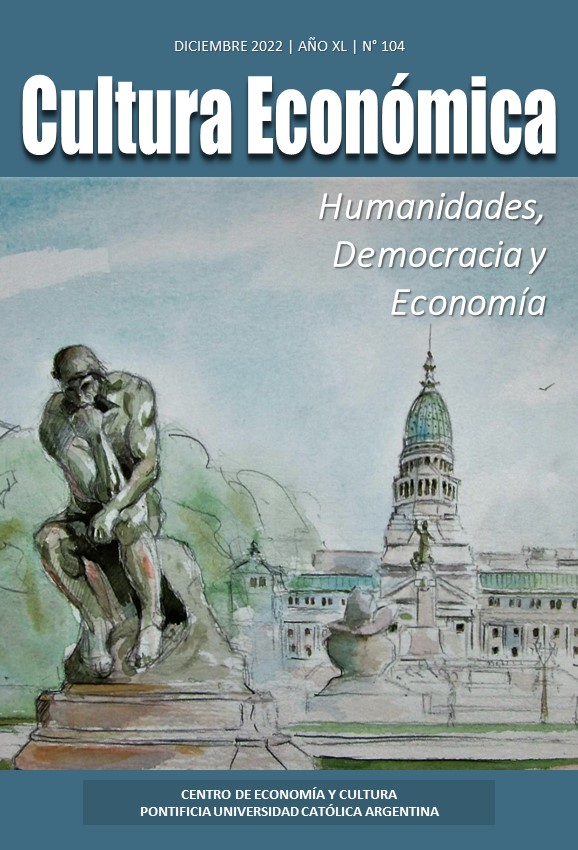Invisible totalitarianisms and identity crisis in the twenty-first century
DOI:
https://doi.org/10.46553/cecon.40.104.2022.p35-48Keywords:
DEMOCRACY, RELATIVISM, IDENTITY, TOTALITARIANISMAbstract
This article is a written version of the lecture given in the forum Challenges for The New Generation 2022. From the general positive opinion about democracy in today´s world, inquiries about its basis. It mentions how from the relativism that is proposed by some authors and a controversial conception of respect of difference appear metaphysical and psychological conditions for the crisis of identity and a totalitarian domination that nowadays is not easily identifiable.Downloads
References
Bauman, Z. (2002). Modernidad líquida. Fondo de Cultura Económica.
Bauman, Z. (2011). Vida de consumo. Fondo de Cultura Económica.
Bauman, Z. (2013). Vida líquida. Paidós.
Fromm, E. (2004). El miedo a la libertad. Paidós.
Gergen, K. (2006). El yo saturado, los dilemas de la identidad en la vida contemporánea. Surcos.
Juan Pablo II (1991). Carta Encíclica Centesimus Annus (1 de mayo 1991).
Kelsen, H. (2019). El absolutismo y el relativismo en la filosofía y en la política (publicado originalmente en inglés en The American Political Science Review. Traducción de Roberto J. Vernego). Documento en línea: https://derechoteorico.files.wordpress.com/2019/03/kelsenabsolutismofilosc3b3fico.pdf Último acceso: julio 2022.
Komar, E. (2007). La estructura del diálogo. Sabiduría Cristiana.
Vattimo, G. (2010). Adiós a la verdad. Gedisa.
Downloads
Published
How to Cite
Issue
Section
License













